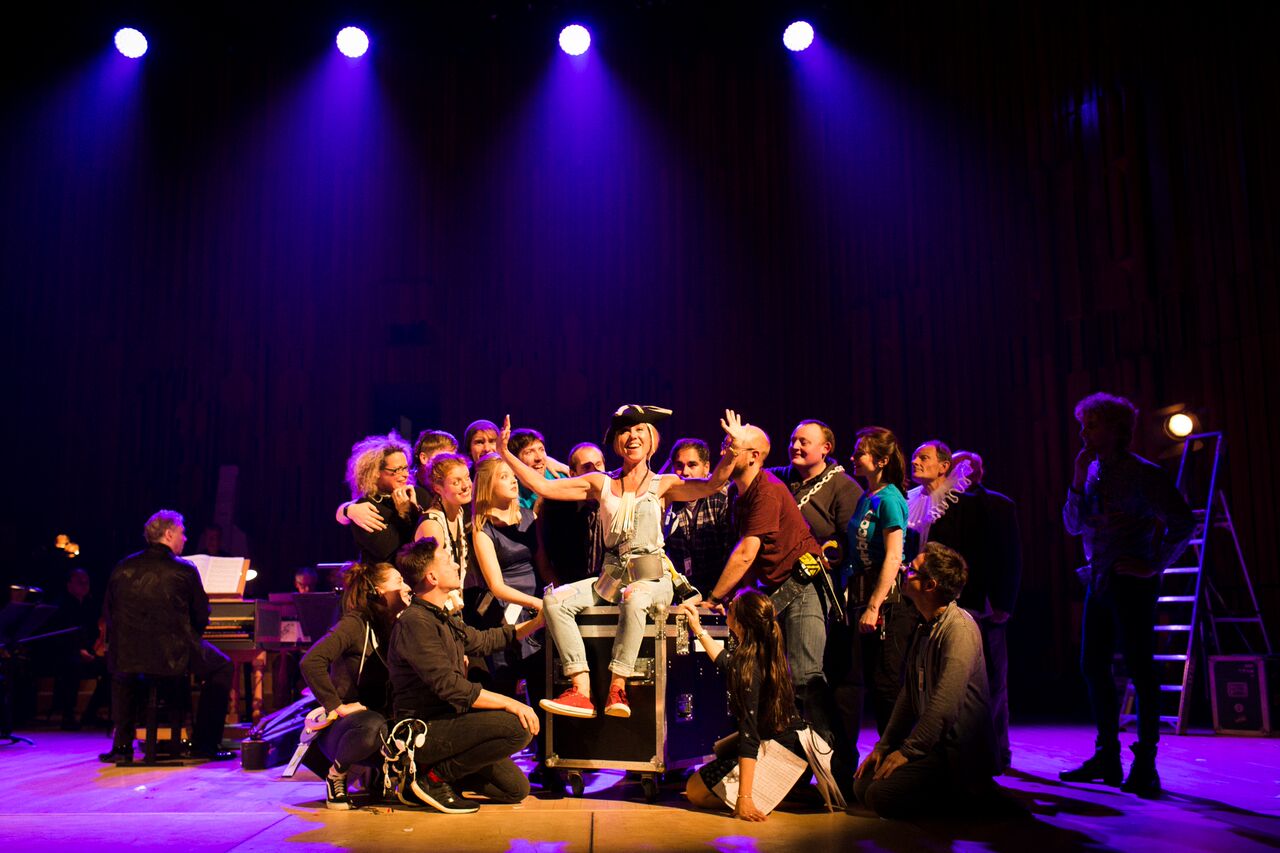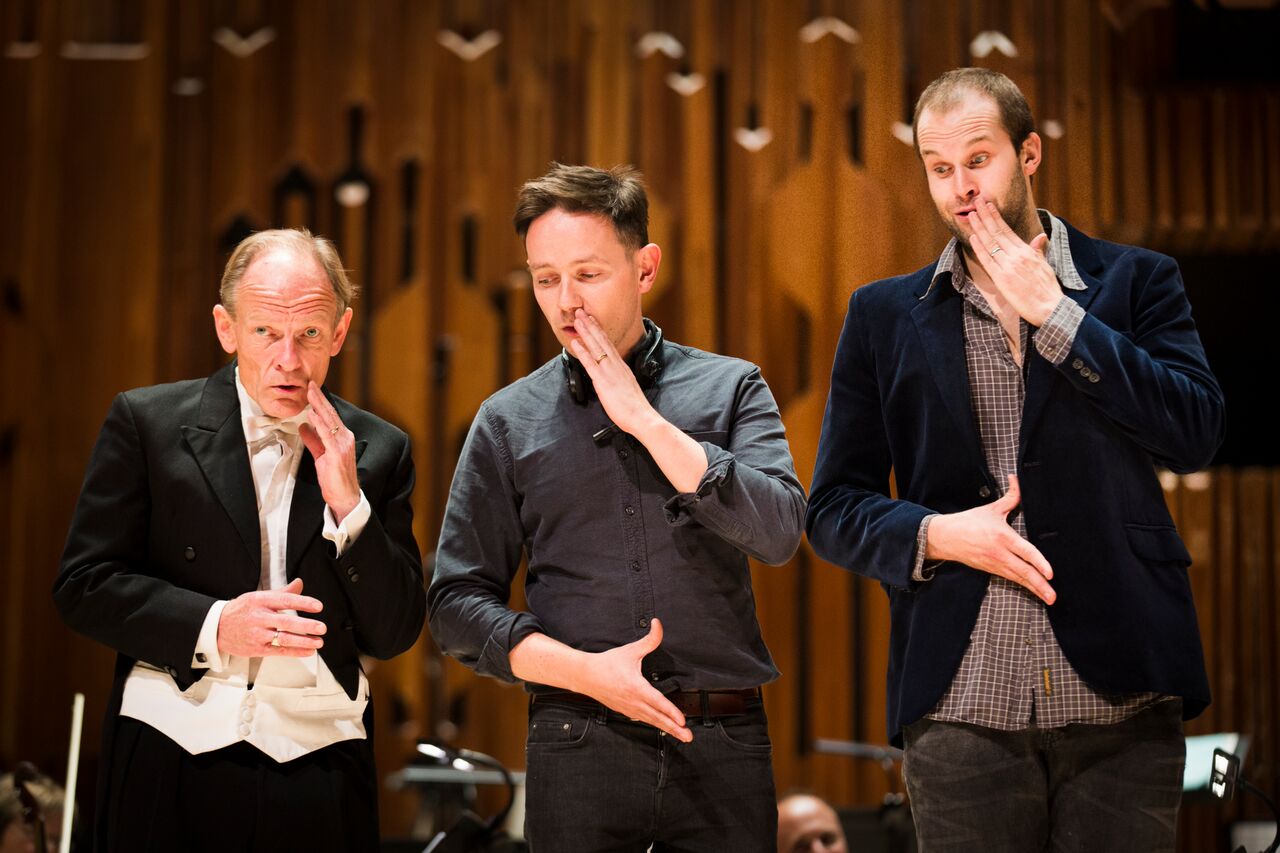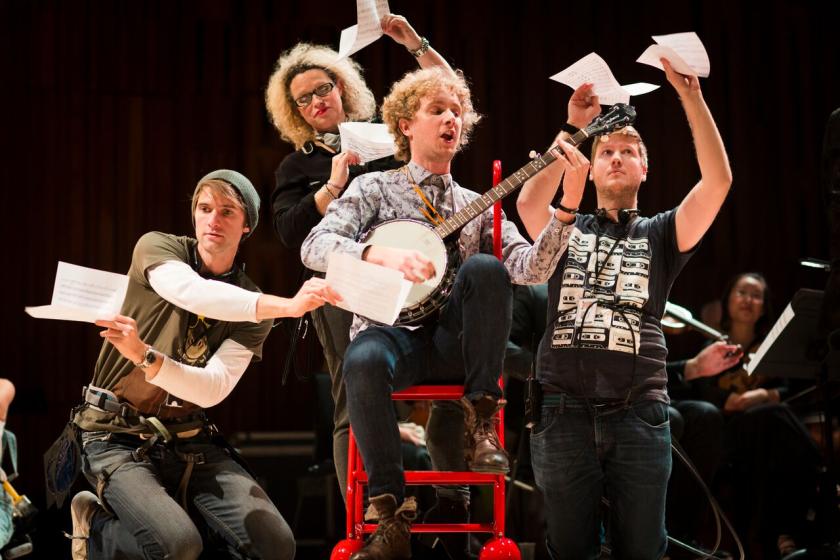Purcell’s The Fairy Queen is a riddle to which directors must find an answer. The problems posed by a work whose theatrical characters have no foothold in the musical interludes, whose text is an awkward composite of almost-Shakespeare and not-at-all-Shakespeare, whose unedited action can easily swell to a will-sapping four hours are not to be underestimated, but to address them by adding further narrative layers, further dramatic frames and meta-theatrical flummery is at best questionable and at worst wilful.
Faced with the challenge of Purcell’s semi-opera, Daisy Evans empties her director’s toolbox onto the stage, knocking through the fourth wall to create an all-purpose kitchen-diner of a concept in which all of Purcell’s characters and every stock theatrical gesture you can think of (fluttering paper birds, falling paper snow, ushers who suddenly turn actors, torches that become stars) must awkwardly coexist.
Timothy West delivers a motley collection of Shakespeare speeches and sonnets
This is a Fairy Queen as staged by contemporary Mechanicals. "Stage crew" wander around with the inevitable earpieces and skinny jeans, musicians burst in late, conductor Richard Egarr chats with a soloist who tries and tries to sing his entry without success. From this chaotic scene certain figures and relationships do gradually begin to coalesce. Rejecting both Shakespeare’s characters and Purcell’s, Evans makes stars of the stage-folk themselves, spinning a chaste love-triangle between a stage manager, a singer and a PA (Iestyn Davies, Rowan Pierce and Gwilym Bowen). As a guiding narrative thread through a piece that’s heavy with transgressive eroticism it’s pretty flimsy, and one that leads its audience further and further from the music itself.
Drama is king in a staging that consistently mistrusts or distracts from the score. Singers must duet while miles apart and facing away from the conductor, arias are sung at the extremes of the stage (effectively inaudible to half the auditorium) or delivered to the percussive accompaniment of paper-ripping or the banging and shuffling of furniture removal. Occasionally narrator Timothy West even speaks over the music, delivering a motley collection of Shakespeare speeches and sonnets with little obvious connection to the action.
It would be easier to forgive the direction if the music weren’t so very good. Egarr, the Academy of Ancient Music and a superb cast of young singers all deserve better than they get here. It all starts and ends with Egarr’s own continuo accompaniments, lively with the wit and whimsy that’s so conspicuously absent from the staging. The band match him for stylish shape-shifting, one minute a rustic wind-band for luckless shepherd Coridon, next ushering in the Masque of Night with the softest of string breaths. The chorus too, endlessly game and completely committed, sing exquisitely while performing a series of increasingly daft actions.
 With the drama so diffuse none of the principals gets much chance to show their skill, but Rowan Pierce makes a charming heroine, sweet and round of tone and a natural lyrical foil for Mhairi Lawson’s vivid, declamatory soprano. Pierce’s Plaint is a rare moment of musical and dramatic harmony, benefitting from a rare stillness that trusts Purcell’s music to work its spell. An underused Davies (pictured above with Charles Daniels and Ashley Riches) makes what he can of what little he’s given, throwing himself into the bungling courtship of Coridon and Mopsa with energy more than matched by his seducer Ashley Riches. Tenors Charles Daniels and Gwilym Bowen round out the solo ensemble, each at their most exciting in the anything-you-can-do duet “Let the fifes and the clarions”.
With the drama so diffuse none of the principals gets much chance to show their skill, but Rowan Pierce makes a charming heroine, sweet and round of tone and a natural lyrical foil for Mhairi Lawson’s vivid, declamatory soprano. Pierce’s Plaint is a rare moment of musical and dramatic harmony, benefitting from a rare stillness that trusts Purcell’s music to work its spell. An underused Davies (pictured above with Charles Daniels and Ashley Riches) makes what he can of what little he’s given, throwing himself into the bungling courtship of Coridon and Mopsa with energy more than matched by his seducer Ashley Riches. Tenors Charles Daniels and Gwilym Bowen round out the solo ensemble, each at their most exciting in the anything-you-can-do duet “Let the fifes and the clarions”.
This Fairy Queen marks the start of a cycle of Purcell semi-operas. Let’s hope for better next time.















Add comment